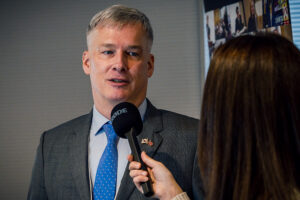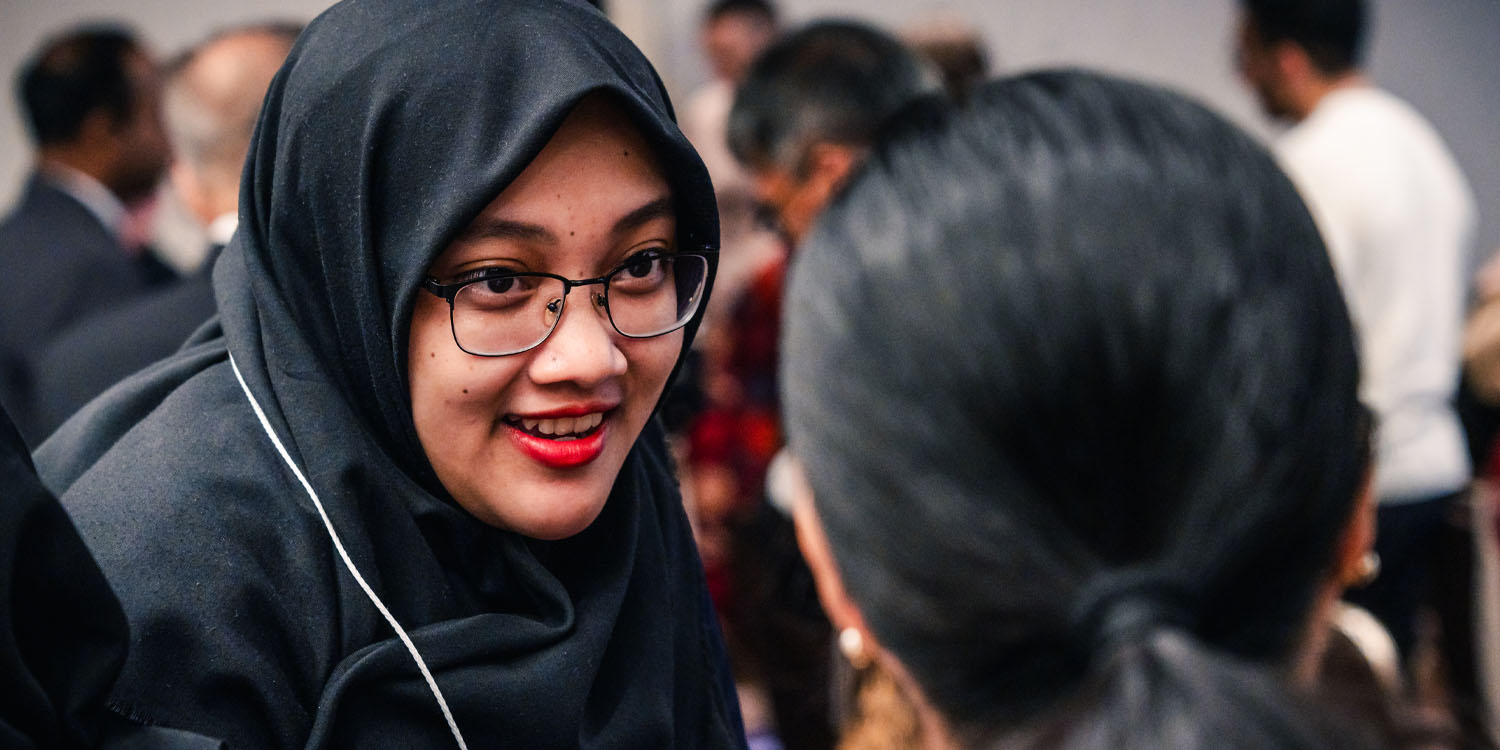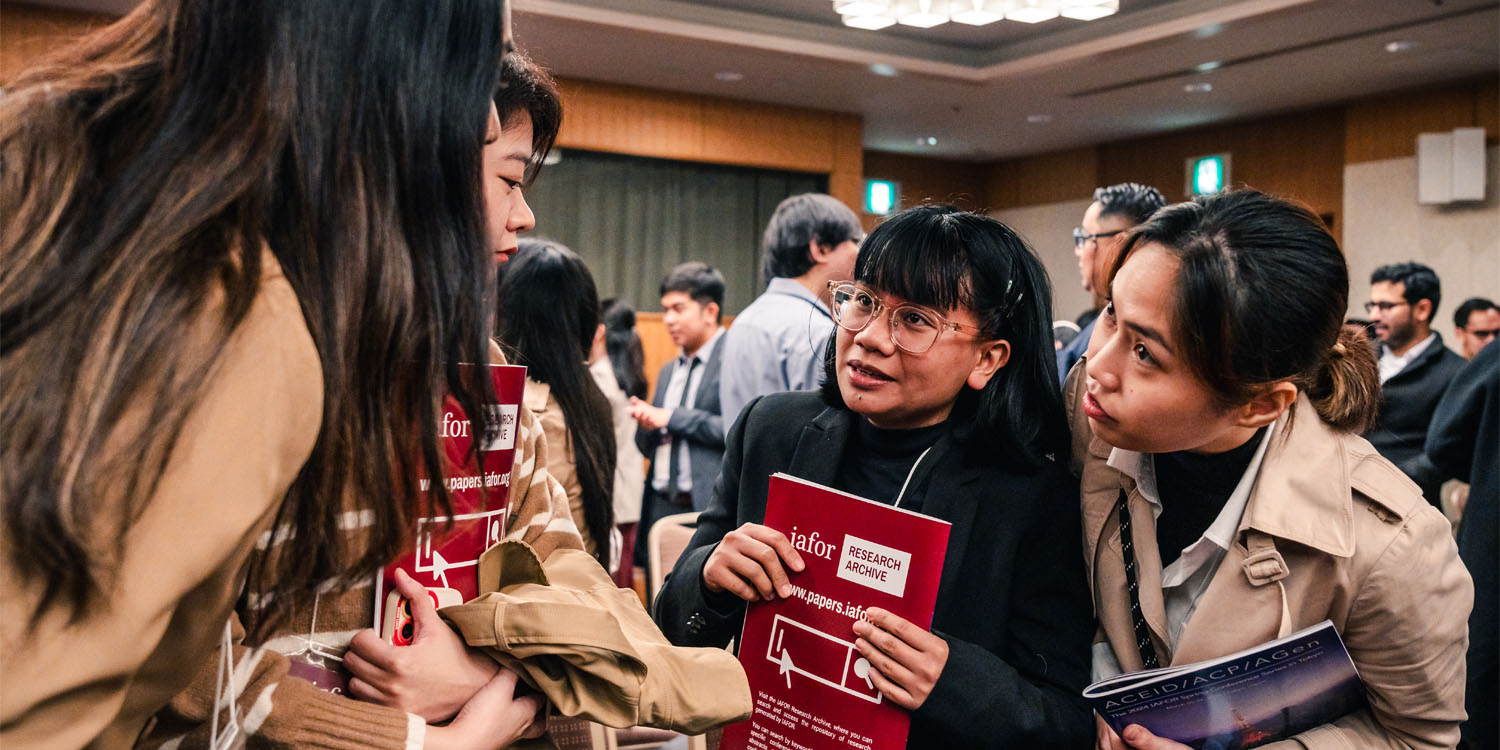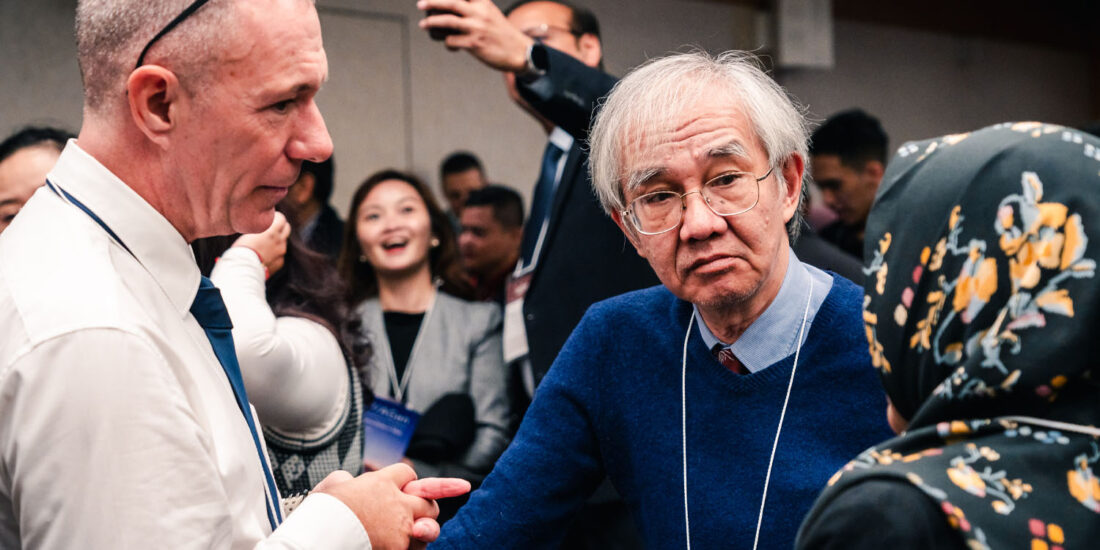IAFOR is excited to announce the introduction of a new series as part of our conference plenary programmes: The Forum. The Forum is designed as a platform for international, intercultural, interdisciplinary—and inclusive— discussions, joining experts and practitioners alike in an interactive and open dialogue format.
The Need for a Forum Within The International Academic Forum
Forums are, by definition, platforms that offer the opportunity to share and discuss ideas, ask questions, and brainstorm solutions on important matters. As a Forum itself, IAFOR represents and facilitates such activities in various ways, specifically through our conferences and journal publications. Admittedly, this process of discussion can be quite formulaic, and we at IAFOR have recognised that the conference programmes attract delegates from a wide range of disciplines, and with an even broader range of academic and professional backgrounds, perspectives, and insights. There is a real opportunity to engage with grassroots voices on the ground at our conferences, where delegates convene; The Forum seeks to present a designated space at our conferences to give such voices a platform to be shared, considered, and heard.
And they wish for a space to be heard. The idea for a Forum within our Forum did not emerge out of the blue. Earlier this year, we rolled out a survey to our IAFOR members asking them what they think the key issues are in their fields of expertise and what type of capacity building they would like to see at future conferences. The driving force behind conducting this survey was the idea that institutions are largely beginning to fail us. There was an urge among survey respondents to step away from policy-making ideas that are well-discussed in formal institutions and media and to instead listen to what people, who are on the receiving end of policies and deal with their impacts, have to say. As a result of the survey, IAFOR was able to capture some common ideas among academics, practitioners, and educators in our community, which differed greatly from the discussions that are on the agenda of global institutions.
In an ongoing effort to make discussions more meaningful and relevant to the experiences from the grassroots at the frontlines, we are piloting The Forum at this year’s combined conferences of The Asian Conference on Arts and Humanities (ACAH2024), The Asian Conference on Cultural Studies (ACCS2024), and The Asian Conference on Social Studies (ACSS2024).
The Forum’s Inaugural Topic: ‘Global Citizenship’
Motivated by the current contentious landscape of the world, be that armed conflict, genocide, ecological crisis, food insecurity, or the rising cost of living, it is evident that we, as non-biased academics, educators, and practitioners, need to open up a different round of discussions to that of policy-makers, on how we can work together towards building more peace and harmony.

Professor Brendan Howe, Ewha Womans University, South Korea
Peace education has been a focal point in these discussions, and is a significant theme that is running through our conferences as well. In fact, at our last conference in Tokyo (ACEID/ACP/AGen2024), we hosted a panel discussion on Communication & Education for Peace. During the Q&A session, a delegate raised the point that ‘global citizenship education’ is an essential part of peace education, but the ‘how to’ remains a complex issue. To this, Professor Brendan Howe at the Ewha Womans University in South Korea responded with an interesting remark; that for global citizenship education to be meaningful, we need to apply the principle of ‘universality’.
Now, this is not to say that we at The Forum are seeking a universal definition of ‘global citizenship’ or ‘peace’ and the specific avenues to achieve them, because these definitions can take on various forms across societies and cultures. In hopes of avoiding a ‘Western domination’ of what universal rights are, Professor Howe proposes for us to instead look at universal wrongs. Instead of fixating, essentially, on what divides us, we should be asking what unites us: ‘No matter what our background is, what can we agree on being wrong?’

What to Expect at The Forum
In light of Professor Howe’s provocation, we would like to hear your ideas. We invite you to join us in discussing the following during The Forum:
- What does it mean to be a global citizen?
- Why does it matter?
- How is it applied within your disciplines?
- How has it affected you or your practice?
- How will it affect your personal and professional life in the future?
IAFOR will be distributing short prompts and polls through a survey a few days before The Forum takes place. The preliminary results will be discussed during The Forum, while participants can also submit their answers in real-time on the day. For an inclusive and fruitful discussion, we invite everyone to submit short answers to questions pertaining to Global Citizenship well in advance. During your discussions with delegates from various backgrounds, you will notice that you will have different answers to all these questions. This is exactly what these questions hope to evoke. Despite answering these questions differently, how can your answers be combined into a single universal statement of what global citizenship looks like? What are your points of convergence? The Forum aims towards answering, once again, the main question that we should always keep in mind: ‘No matter what our background is, what can we agree on being wrong?’

Join the Conversation at ACAH/ACCS/ACSS2024
Come and share with other international experts and colleagues through interdisciplinary dialogue, what you and your newfound colleagues’ thoughts on global citizenship are. Through this activity, you will be able to contribute to an academic and political debate that potentially holds the key to more peace and harmony among countries and within societies, and which has been troubling policy-makers for decades due to its complex nature.
IAFOR will be facilitating this forum discussion for the first time at The Asian Conference on Arts and Humanities (ACAH2024), The Asian Conference on Cultural Studies (ACCS2024), and The Asian Conference on the Social Sciences (ACSS2024) on May 24, 2024, from 11:00-12:30 at the Toshi Center Hotel, Tokyo, Japan. We expect all participants to attend and have a fruitful discussion on an interesting and timely topic.
On behalf of the IAFOR Academic Board and the Conference Programme Committee, we look forward to seeing you at the conference and hearing your thoughts at The Forum.

